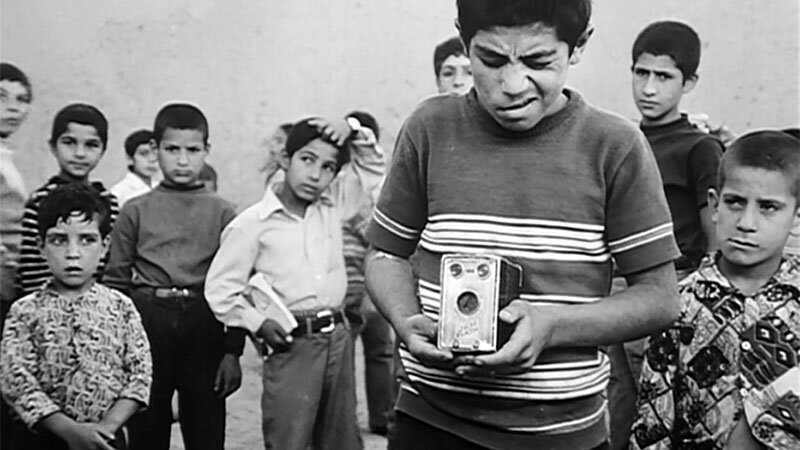Kiarostamis Traveler on screen at Festival des 3 Continents
Kiarostami’s “Traveler” on screen at Festival des 3 Continents
TEHRAN- The world-renowned Iranian filmmaker Abbas Kiarostami’s 1974 film “The Traveler” is on screen at the 46th edition of Festival des 3 Continents (Three Continents Film Festival), which is currently underway in Nantes, France.

The film is featured in the Young Audience Selection of the event, aimed at introducing children and young adults to the cinema of Asia, Africa, and Latin America.
In "Traveler" we follow the journey of Qassem Julayi, a 12-year-old boy obsessed with football, living in the impoverished city of Malayer. Rather than focusing on his studies, Qassem spends his after-school hours playing in the alleys with friends. His illiterate mother constantly berates him for neglecting his schoolwork, but he has become adept at crafting excuses for his poor grades. The film opens with a comical scene where Qassem arrives late to school, claiming a toothache while hiding a football magazine he has purchased instead.
Determined to witness a crucial football match in Tehran, located 150 miles away, Qassem decides to make the journey on his own. However, he needs 10 tomans for the bus fare. Resorting to theft, he pilfers five tomans from his mother’s hidden stash, which she discovers and reports to the school principal. Instead of sympathy, the principal punishes Qassem for his misdeeds. Undeterred, Qassem enlists the help of his friend Akbar to raise money by selling small items. Their attempts prove fruitless until Qassem concocts a scheme to take "portraits" of younger children with an empty camera, charging five rials for each session. Paying no heed to the futility of these portraits, they enthusiastically pose while Qassem clicks away, collecting meager funds.
After much effort, Qassem sells his team’s soccer ball, which is a significant group possession, to gather enough money for his bus fare. That evening, he counts down the minutes in his squalid bedroom before climbing down a drainpipe and racing through the dark streets to catch the bus.
Upon arriving in Tehran the next day, Qassem stands in line to purchase a ticket only to find that they have sold out just as it is his turn. In desperation, he buys a ticket from a scalper at a high price. After entering the stadium with anticipation, he learns from a bystander that the game will not start for three hours. Eager to explore, he wanders the athletic complex, conversing with a laborer and even taking a nap in the shade. He is plagued by dreams of guilt and punishment; when he finally awakens, he discovers the stadium is empty and littered, revealing that he has missed the game altogether.
Abbas Kiarostami (1940-2016) was an Iranian film director, screenwriter, poet, photographer, and film producer. An active filmmaker from 1970, Kiarostami had been involved in the production of over 40 films, including shorts and documentaries. Kiarostami attained critical acclaim for directing “Close-Up” (1990), “The Wind Will Carry Us” (1999), and “Taste of Cherry” (1997). In later works, “Certified Copy” (2010) and “Like Someone in Love” (2012), he filmed for the first time outside Iran, in Italy and Japan, respectively.
Kiarostami was part of a generation of filmmakers in the Iranian New Wave, a Persian cinema movement that started in the late 1960s and emphasized the use of poetic dialogue and allegorical storytelling dealing with political and philosophical issues.
Kiarostami is known for his use of Persian poetry in the dialogue, titles, and themes of his films. His films also contain a notable degree of ambiguity, an unusual mixture of simplicity and complexity, and often a mix of fictional and documentary elements. The concepts of change and continuity, in addition to the themes of life and death, play a major role in Kiarostami's works.
SAB/
source: tehrantimes.com